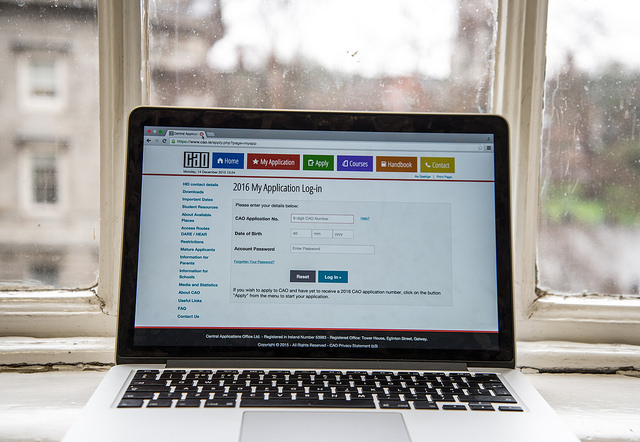As CAO offers to Trinity courses are made this morning, there has been a drop in the CAO points for the college’s computer science course for the first time. Early and modern Irish, which has struggled to attract students in recent years, saw a drop of 50 points to 375.
A total of 7,965 students put Trinity as their first-preference, an increase on last year’s 7,876 and a reversal of the trend that had seen Trinity the only university in Ireland to see a consistent, year-on-year decrease in applications between 2012 and 2014. Up to 3,307 places are being offered.
Computer science, which saw a 15-point rise to 490 last year, fell to 480. Early and modern Irish only registered three students in 2014, despite having a quota for 15 students. Last year it was announced that Irish studies would be discontinued from 2016, after failing to attract enough eligible students
After a dramatic increase of 55 points last year, points for music have fallen significantly, from 445 last year to 395 in 2016. Deaf studies, which had remained unchanged for the last two years, saw a fall of 40 points to 360.
Mental health nursing, after a high of 415 points 2015, saw a 30-point drop this year.
Engineering experienced only a small five-point increase, while engineering and management, which increased by 45 points last year, saw another 15 point jump this year. The lack of a strong showing for STEM courses overall however, will cause concern, especially following the dramatic rise in the failure rate of ordinary level maths in the Leaving Certificate, which rose from 5.8 per cent in 2015 to 9.2 per cent this year.
How Trinity’s points have changed
Two courses that saw large increases in points this year were philosophy and history and political science. The former, whose points had remained at around 400 for the last two years, saw a jump of 45 points this year to 455. History and political science too saw its highest points since 2011, with a 25-point increase bringing the course to 535 points.
Sociology and social policy saw an increase in points, rising to a record high of 480.
Law-related courses remain largely unchanged after big increases last year, although points for law and business have continued to rise to 585, making it the highest law-related course in Trinity, with points for law and French falling to 575.
Points for medicine, which had stayed fixed at 733 for the last two years, saw a small decline to 730 this year. The points required for general nursing at the Adelaide School of Nursing remain unchanged at 400, while points for nursing at Meath and St James’s rose slightly by five points.
While there was little change in points for most business-related courses, both business studies and Russian and business studies and Polish saw increases, with the latter’s points rising by 25 to 430.
Trinity Business School’s new business studies course, launched for the first time this year, saw points of 535. BESS, however, saw no change in points, remaining at 510.
In the Faculty of Health Science, pharmacy reversed its decline over the last number of years, with points rising to 560. Radiation therapy too saw a small rise in points, while human genetics fell slightly from 575 to 570.
Points for Trinity’s two-subject moderatorship (TSM) subjects remained high, with points for TSM music, philosophy and psychology maintaining the high level of points usually required for acceptance into the courses.
167 places were offered to students from disadvantaged socio economic backgrounds through the access programme, Higher Education Access Route(HEAR) alongside 178 places to students with disabilities under Disability Access Route (DARE).
Twenty-five places were also offered places in Trinity as part of the alternative admissions scheme, which takes into account the Relative Performance Rank (RPR) – how the student performed compared to others in their class – and a personal statement, as well as Leaving Certificate results.
As of March, Trinity had experienced a 22 per cent increase in students applying from Northern Ireland, as changes to the points available for grade bands for Northern Irish applicants took effect for the first time.
A total of 18,551 students applied to study in Trinity, down slightly from 2015’s 18,914 applicants.
CAO offers went online at 6am this morning, and second-round offers are available on September 1st.







